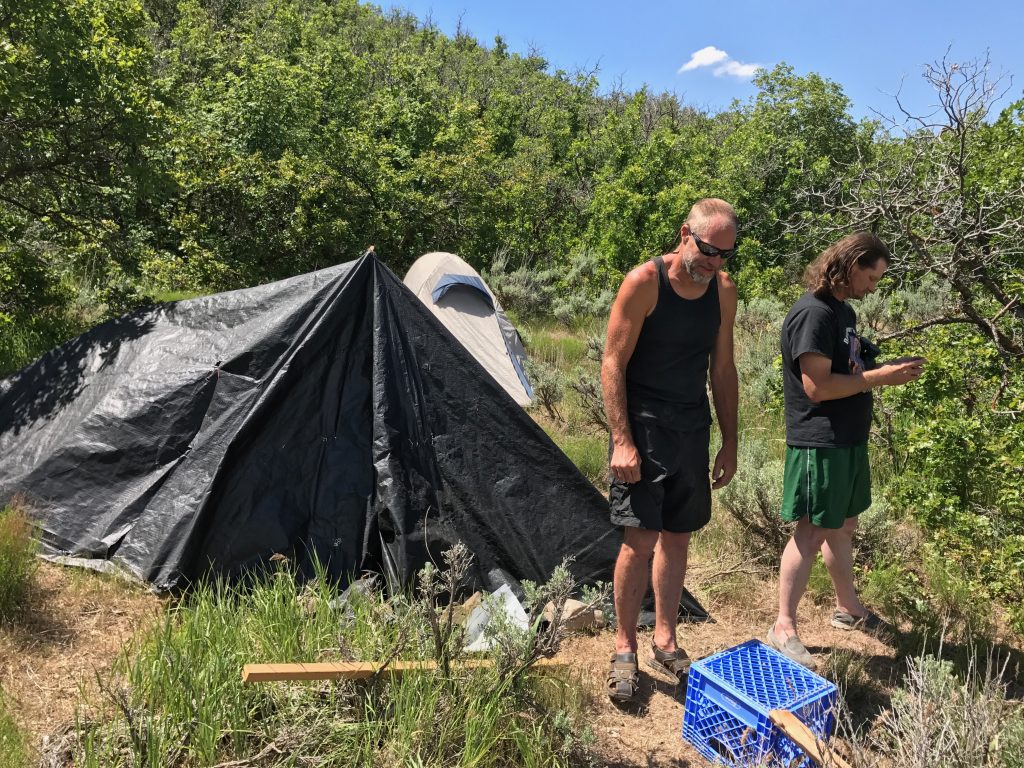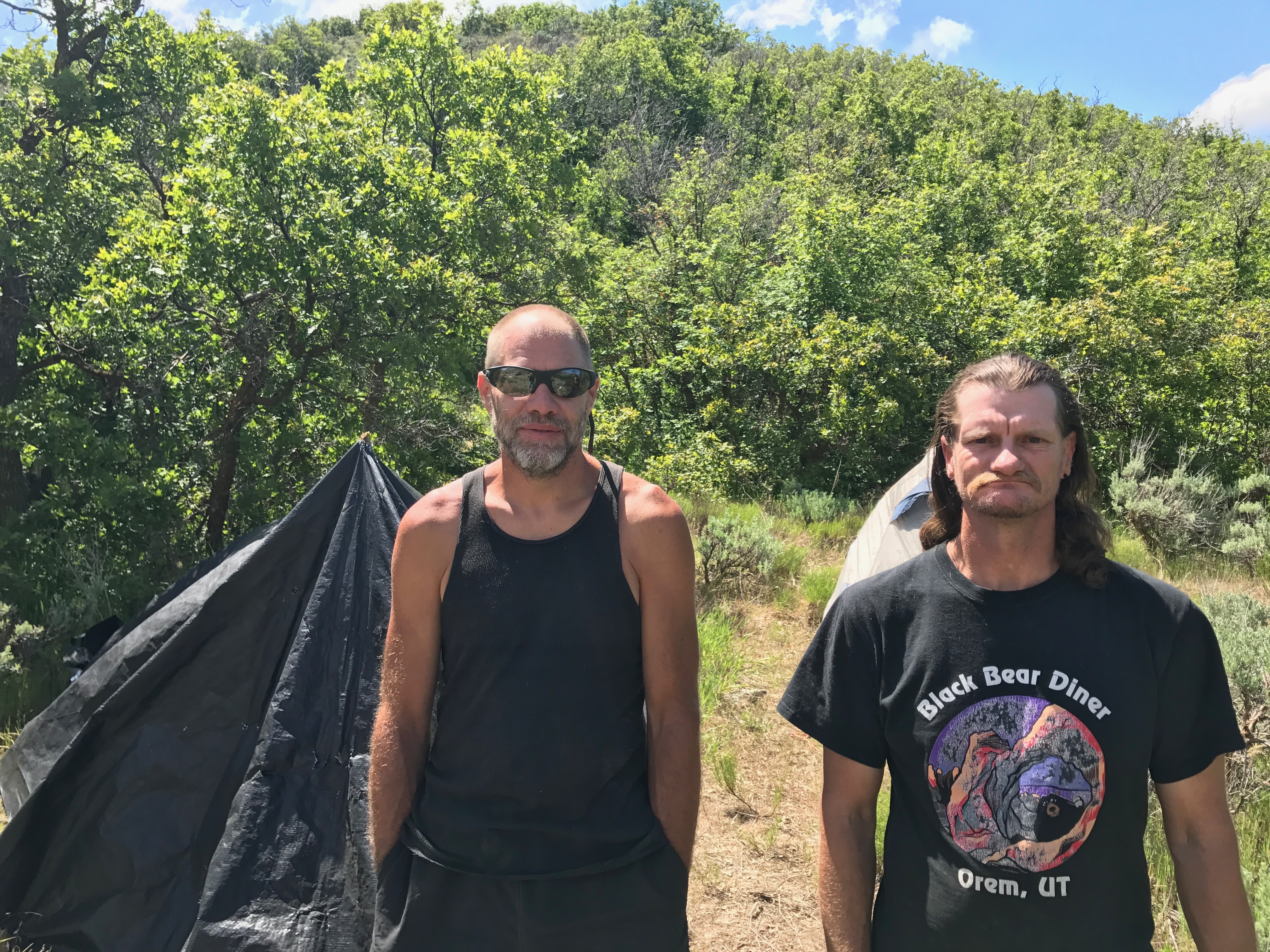
Shaun Glazier and Wayne Seeley said they feel people judge them for being homeless and want others to see they are just like everyone else.
Former Provo City Council member Steve Turley said after talking with Glazier, Seeley and others, he gained greater empathy for their situation and better understood how to help them.
“When I met with them and found out their story, I saw they were such real people,” Turley said. “They were no longer a threat to me.”
Turley said there are individuals you need to be cautious around, but many of the homeless individuals he met are decent people.
“They are just poor,” Turley said.
Turley received a number of calls in the summer of 2016 from a local resident about individuals camping out on a piece of land Turley owned in south Provo.
“I had people calling me asking me to run them off, and those calling were pretty mean spirited,” Turley said.
Turley approached the individuals who were living on his land, two of whom were Glazier and Seeley.
“When I met Shaun, I quickly learned that he and I had grown up in the same neighborhood, in the same ward and had gone to the same school,” Turley said.
He quickly learned these men had no drug addictions and were veterans. Turley allowed them to stay.
Turley said others were less understanding.
“Police began going up on my land saying these guys had to leave and that they had the ability to kick them off even though it was private property,” Turley said. “This simply isn’t true.”
City involvement forced Turley to make the homeless individuals, including Glazier and Turley, leave his land.
Glazier, raised in Provo, became homeless following a divorce that left him ostracized by family and with nothing financially. He said his ex-wife accused him of molesting his daughters shortly after the divorce, but he was found innocent through a criminal investigation.

Both Glazier and Seeley served overseas. Glazier served in Iraq while in the Army, and Seeley served as a sniper for the Marines in Desert Storm.
“I have really bad PTSD and a marriage that cost me everything,” Seeley said. “Because of my PTSD, I don’t do well around people, so living this way has actually helped.”
Seeley said one of the biggest challenges of being homeless is how others seem to view homeless people.
“People see you and avoid you because they can tell you’re homeless,” Seeley said. “They’re judging us without even knowing us.”
Glazier agreed. “They treat us like a leper colony.”
Glazier said people from every segment of society can be found in the homeless community, ranging from former doctors to engineers to laborers.
Glazier and Seeley said some homeless individuals are dangerous and cannot be trusted, but people shouldn’t judge all homeless people based on those few.
Seeley says he does what he can to take care of himself and also help others when he can, using money from food stamps and his social security funds from his military disability.
“I’m homeless, but I still help other homeless people out. If I have a little extra money or food, I’ll give them that,” Seeley said. “I’m a homeless person helping others out while there are others too busy judging us.”
Glazier said one large challenge he faces is getting sufficient power for his devices. He goes to a local park during the day to charge his cellphone, but said he has been forced to leave multiple times for no apparent reason.
“Phones are necessary to get a hold of caseworkers and loved ones, but we get kicked out of parks,” Glazier said. “They run us off.”
Seeley and Glazier said they would like to be shown more kindness and helped every now and then with a little bit of food.
“If people hang around us, they’re not going to catch something and magically become homeless,” Glazier said. “But you might become homeless, because it could happen to anybody.”




